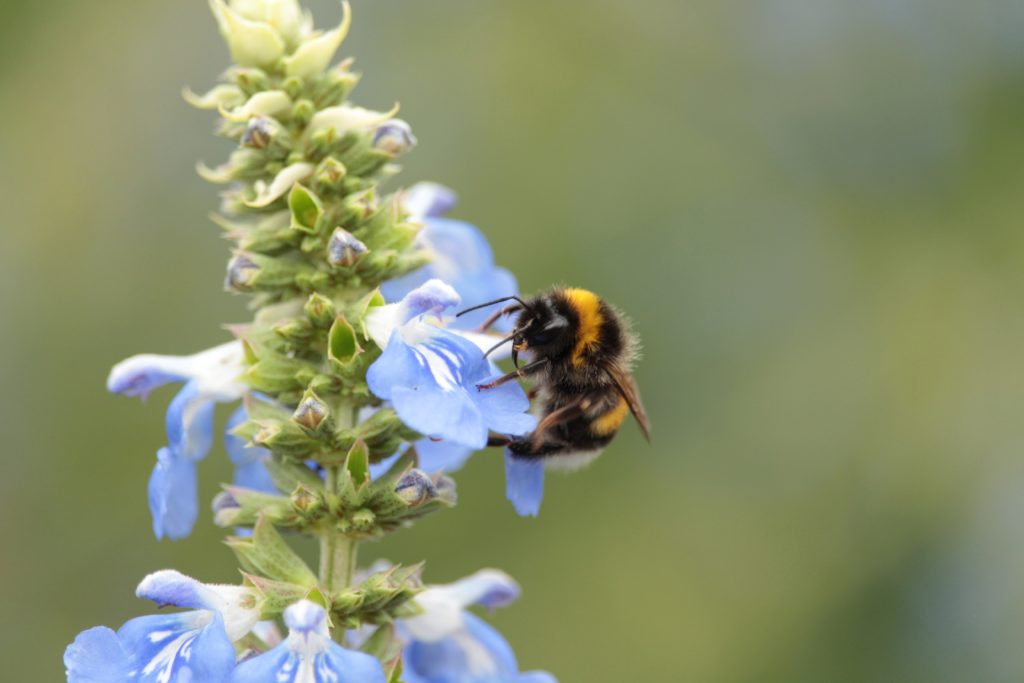World Bee Day – How To Save The Bees

Why are bees so important?
Without bees – we would be in serious trouble! The humble bee is responsible for pollinating a third of all the world’s food, including tomatoes, broccoli, and strawberries. If bees were gone it would cost farmers vast amounts of money to manually pollinate their crops - a cost which would have to be passed onto the consumer.
Bees also assist in the pollination of 80% of all flowering plants and are essential to the growth of trees – helping to filter our air and keep our planet green. Vital for biodiversity in nature, bees are also useful to scientists when investigating the environment – and can help to judge if action is required.
With both the environmental impact and threat to food security, the declining bee population is an issue for the whole world!
What are the threats to bees?
Unfortunately, the bee population is rapidly declining. Habitat loss is the single biggest threat, where forests and meadows get cleared for new houses and businesses. Without these areas, the bees have nowhere to feed, forage, and rest.
The ever-growing need for food means that there has been an increase in the use of pesticides, harmful to not only bees but other wildlife in our fields and rivers. Where possible, purchase organic foods – these are grown without pesticides. Alternatively, why not grow your own fruits and vegetables? This can help to avoid these pesticides, and can also reduce the demand for large-scale intensive farming. Our eco-friendly gardening range can help with this – we have a selection of bamboo tools & seed starting kits available on our website!
Invasive non-native species are also partially to blame for the decline, because these cause competition for food and habitat. These species are often parasites which have been brought over from other countries, destroying bee colonies from the inside.
And of course, the big one - climate change. Bees are unable to cope with drastic changes in weather, such as long dry spells followed by extreme rain. These changes can both disrupt and destroy the growth of flowering plants, meaning that the bees are again without food & shelter.
What can we do to help the bees?
Fortunately, the issue of the declining bee population is one that has come to the forefront of people’s minds in recent years. There are several things we can do in our lives, for little or no money to help:
- Have a ‘bee-friendly’ garden - grow flowering plants all year round so bees that hibernate late/wake early have a food supply.
- Educate others on the importance of bees - why not gift one of our wildflower cards to friends to spread this message?
- Put up ‘bee hotels’ or nests for the bees to hibernate in safely.
- Help tired bees - if you see a bee struggling, a sugar-water mix can help them to recover.
- Buy local honey from small-scale beekeepers – these will usually have higher welfare standards and work towards repopulation over profits.
What flowers do bees like?
Bees love purple flowers! They see this colour best - so having purple coloured plants in your flower beds is really important for bee prosperity. Lavender, buddleias and foxgloves are some great examples. It is also important to plant tubular-shaped flowers, as these are helpful for long-tongued bees.
This World Bee Day, why not commit to taking even one step towards helping to sustain and increase the bee population? If everyone followed just one of the tips above, it would have a massive impact. If you don't have a garden, you could always get involved with community projects in your local parks. There is always something to do to help keep our planet green and thriving - and bees are imperative to this!
